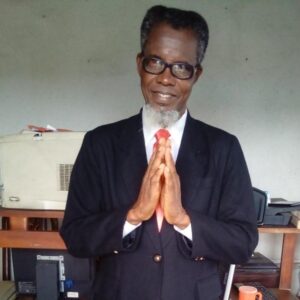THE QUEST FOR TRUTH: UNDERSTANDING ITS NATURE AND OUR RELATIONSHIP WITH IT

Truth is a concept that has perplexed humanity for centuries. Philosophers, theologians, scientists, and everyday individuals have grappled with its meaning, its existence, and its implications. The dichotomy surrounding truth—whether it is an absolute entity or a subjective construct—has led to a myriad of interpretations and beliefs.
In this article, we will explore the nature of truth, the common misconceptions surrounding it, and how individuals can embark on a journey to discover their own truths.
What is Truth?
At its core, truth can be defined as a statement or belief that accurately reflects reality. However, this definition quickly becomes complicated when we consider the various contexts in which truth is applied.
- Objective Truth: This refers to facts that are universally accepted and verifiable, such as scientific truths (e.g., water boils at 100 degrees Celsius at sea level). Objective truths exist independently of individual beliefs or perceptions.
- Subjective Truth: This encompasses personal beliefs, feelings, and interpretations of experiences. For instance, one person may find solace in a particular piece of music, while another may not resonate with it at all. Subjective truths are shaped by individual experiences and perspectives.
- Relative Truth: This concept suggests that truth can vary based on cultural, social, or situational contexts. What is considered true in one culture may not hold the same weight in another. For example, moral truths can differ significantly across societies. The Divide: Does Truth Exist?
The debate over the existence of truth often falls into two camps:
- Skeptics: Some argue that truth is an illusion, a construct of human perception that can not be fully grasped. They contend that our understanding of reality is always filtered through our subjective experiences, making it impossible to attain an objective truth.
- Realists: Others assert that truth exists independently of human perception and can be discovered through reason, observation, and inquiry. They believe that while our understanding of truth may be imperfect, it is still attainable.
Both perspectives hold merit, and the reality likely lies somewhere in between. Truth may be multifaceted, encompassing both objective and subjective elements. The challenge lies in discerning which truths are universal and which are personal.
The Misplacement of Truth
Throughout history, humanity has often found itself at war with truth. This conflict can manifest in various forms, including:
- Political Manipulation: Leaders and governments have frequently distorted or suppressed the truth to maintain power. The propaganda used during wartime, such as the misinformation spread during World War II, illustrates how truth can be manipulated for political gain. The infamous phrase “truth is the first casualty of war” encapsulates this phenomenon.
- Religious Dogma: Throughout history, religious institutions have sometimes prioritized doctrine over individual understanding of truth. The Inquisition, for example, sought to suppress dissenting beliefs, often leading to persecution and violence against those who dared to challenge established truths.
- Scientific Denial: In contemporary society, we see a growing trend of rejecting scientific truths in favor of personal beliefs. The climate change debate exemplifies this, where empirical evidence is often dismissed by those who prioritize ideological beliefs over scientific consensus.
- Social Media and Misinformation: In the digital age, the spread of misinformation has become rampant. Social media platforms can amplify falsehoods, leading individuals to accept distorted versions of truth. The challenge of discerning fact from fiction has never been more pressing.
How to Discover and Own Your Truth
- Critical Thinking: Cultivating critical thinking skills is essential for navigating the complexities of truth. Questioning assumptions, evaluating evidence, and considering multiple perspectives can help individuals arrive at a more nuanced understanding of reality.
- Self-Reflection: Engaging in self-reflection allows individuals to examine their beliefs and values. Understanding the origins of one’s beliefs can lead to a deeper comprehension of personal truths.
- Open Dialogue: Engaging in conversations with others, especially those with differing viewpoints, can broaden one’s understanding of truth. Listening actively and empathetically can foster a more inclusive approach to truth-seeking.
- Continuous Learning: The pursuit of truth is an ongoing journey. Staying informed, seeking knowledge, and being open to new ideas can help individuals refine their understanding of truth over time.
- Emotional Intelligence: Recognizing and understanding one’s emotions can provide insight into personal truths. Emotions often serve as a compass, guiding individuals toward what resonates with their authentic selves.
Conclusion
Truth is a complex and multifaceted concept that requires careful consideration and exploration. While the divide between those who believe in absolute truth and those who see it as subjective may seem insurmountable, the journey toward understanding truth is a personal and collective endeavor. By embracing critical thinking, self-reflection, open dialogue, continuous learning, and emotional intelligence, individuals can navigate the intricate landscape of truth and ultimately discover their own.
In a world rife with misinformation and manipulation, the quest for truth is more important than ever. It is a journey that demands courage, curiosity, and a commitment to understanding—not just for oneself, but for the betterment of society as a whole







